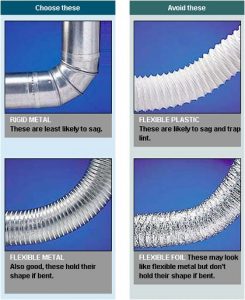As the weather continues to get warmer this summer, one of the most important things for homeowners to consider is fire safety. Whether it’s taking preventative measures to reduce the chances of a fire, or making sure your home is well prepared in the instance that a fire does occur, homeowners need to take action to make sure their family is safe from the dangers of fire.
Fire Sprinkler Systems
Studies show that automatic sprinkler systems are the most effective way to protect against the dangers of a fire in the home. Here are a few tips to ensure your sprinkler system is operating ideally:
 Make sure the sprinklers are unobstructed. Do not hang clothing or any other items from sprinkler heads on the ceiling or it may obstruct water discharge or prevent the sprinkler from being activated.
Make sure the sprinklers are unobstructed. Do not hang clothing or any other items from sprinkler heads on the ceiling or it may obstruct water discharge or prevent the sprinkler from being activated.- Leave all maintenance to the professionals. If you notice an issue with one of your sprinkler heads, do not attempt to fix the problem yourself, unless you are professionally capable of doing so. If maintenance is not properly done, your automatic sprinkler system may not operate correctly.
- Full testing and tagging should be performed annually – especially in detached homes & town homes which are not annually tested and re-certified, like condo buildings are required to be. During a complete fire sprinkler system test, the technician should perform physical checks on all parts of your fire sprinkler system. These checks include water flow tests, fire pump tests, antifreeze concentration tests (in applicable systems), alarm tests, and trip tests of dry pipe, deluge, and pre-action valves.
Is your dryer exhaust vent a fire hazard?
One of the most common issues found during a home inspection is poor or inappropriate dryer exhaust venting and materials, which can lead to a fire hazard. Here are a few tips to help prevent a fire with your dryer exhaust vent:
 While it’s important to clean the lint out of the filter every time you finish a load, it is equally important to be aware of how clean your dryer vent is and the type of exhaust vent materials that are being used.
While it’s important to clean the lint out of the filter every time you finish a load, it is equally important to be aware of how clean your dryer vent is and the type of exhaust vent materials that are being used.- The fibers in clothing create lint continually and, over time, the particles that escape through the filter in the dryer can build up, leading to a potentially dangerous fire hazard, especially if any part of your dryer’s exhaust vent is made of a flammable material ( such as plastic ).
- The use of vinyl flexible pipe, which many homes still have installed, is all but completely prohibited by clothes dryer manufacturers. Some municipalities still allow the foil-covered vinyl flex pipe, but almost all appliance manufacturers insist on the use of a metal type flexible pipe.
Other fire prevention tips
We’ve already covered a couple of fire prevention subjects already, but here are a few more important things to consider:
 You should have a smoke alarm and carbon monoxide detector on every floor in your home, including the basement, and especially near bedrooms. Also, check batteries in both on a regular basis, if not self-recharging. It is recommended you change batteries when you move the clocks forward and back ( spring and fall
).
You should have a smoke alarm and carbon monoxide detector on every floor in your home, including the basement, and especially near bedrooms. Also, check batteries in both on a regular basis, if not self-recharging. It is recommended you change batteries when you move the clocks forward and back ( spring and fall
).- Keep a fire extinguisher on every floor of your home. You should especially have one in the kitchen, garage and basement.
- Be sure that nothing can come into contact with baseboard heaters, such as curtains, toys or electrical wires.
- Do not overload electrical outlets or run wires or extension cords under carpets or furniture.
- Store flammable liquids in approved containers and away from heat sources.
- Make sure the fuses and circuit breakers in your electrical distribution panel are the correct amperage. Never replace a fuse or breaker that blows with a higher-amperage.
- Prepare an evacuation plan for your home and hold practice fire drills until every family member instinctively knows what to do in the event of a fire, including where to meet once outside ( arrange a spot at a safe distance away ).
- On the exterior – clear away combustibles, such as dead branches, grass, shrubbery, etc., which could be ignited.
- Have a reliable garden hose at the ready in case of a fire threat nearby.
Fire safety is one of the most important aspects of making sure your home is safe for you and your family. Be sure to follow our checklist to ensure you and your family have a safe and enjoyable summer.
If you have any questions regarding fire safety in your home, or any home inspection questions at all, contact Glenn Duxbury at Duxbury & Associates to set up a consultation.

